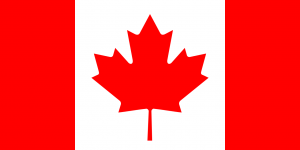Canada plays host to more than 175,000 International students in any given year. Increasingly, Canada is becoming the country of choice for students from all parts of the world.
STUDY IN CANADA
Canada has been declared the country with the best reputation in the world for the third consecutive year. In addition to taking home the overall title, Canada claimed the number one spot in categories ranging from “best place to live” to “best place to study,” while also ranking high for working, visiting and investing. Canada is a bilingual country and is considered a world leader in language training. Since teaching French and English as a first and second language is an integral part of a Canadian education, you will be able to improve your fluency and capacity for either language as you further your studies.

INEXPENSIVE
Canadian Institutes, charge lower tuition fees for international students than their counterparts in competing countries and at the same time, maintain excellent education quality. . However as the fees are more affordable, admissions are more competitive. Over the last three years, Canada’s inflation rate has remained one of the lowest in the industrialized world.
PERMANENT RESIDENCY AND CANADIAN IMMIGRATION
International students can apply for their Permanent Residency which takes up to 15 to 18 months from within Canada. However they need to meet the minimum eligibility criteria of 67 Points.
RANKED AS THE NUMBER ONE COUNTRY
For the past 9 consecutive years, a United Nation survey has found Canada to be the best place in the world to live. The survey conducted every year, evaluates quality of life in 174 countries, using over 200 performance indicators. Canada earns particularly high marks for its access to education, high life expectancy, and low crime rates.
A SAFE PLACE TO STUDY
Every step is taken to ensure the safety of students on Canada’s campuses. Most universities / colleges have their own campus security 24 hours a day. There are also ” Walk Safe” programmes to assist people in getting to public transportation during late hours.
A BILINGUAL NATION
Canada is a bilingual country with two official language, English and French. The vast majority (75%) of Canada’s French speaking inhabitants live in the province of Quebec, which is located in the eastern part of the country but there are French-speaking communities throughout the country. English is the main language of communication in all provinces other than Quebec.
EDUCATION SYSTEM
Education in Canada is under the complete jurisdiction of the provinces and territories (States) and as such, there is no Federal (Central) education system in Canada. In keeping with the national commitment to education, public education in Canada is free up to and including secondary school ( 12th Std), in all the provinces. At the post-secondary level, institutions are divided into community colleges and universities. A significant number of university graduates attend college upon completion of their degree in order to acquire vocational skills for employment.
ENGLISH LANGUAGE REQUIREMENT
All students must be fluent in English if they are applying to Canadian Institutes. International students need to reach the required level of English language competence. All students should take up the IELTS exams. An IELTS band of 6.0/6.5 for Undergraduate & 6.5/7 for Postgraduate courses is desirable.
We assist you with:
• Services Registration
• Visa Documentation Checklist
• Mock Visa interviews
• Presentation Technique
• Do’s & Don’ts for getting the Visa
• Personal Approach to boost your Confidence
Contact us to find out more about studying in a range of countries including details of top universities, student cities, costs, visas, applications and more.
S4S Helps You Achieve Your Dreams Of Studying Abroad.


